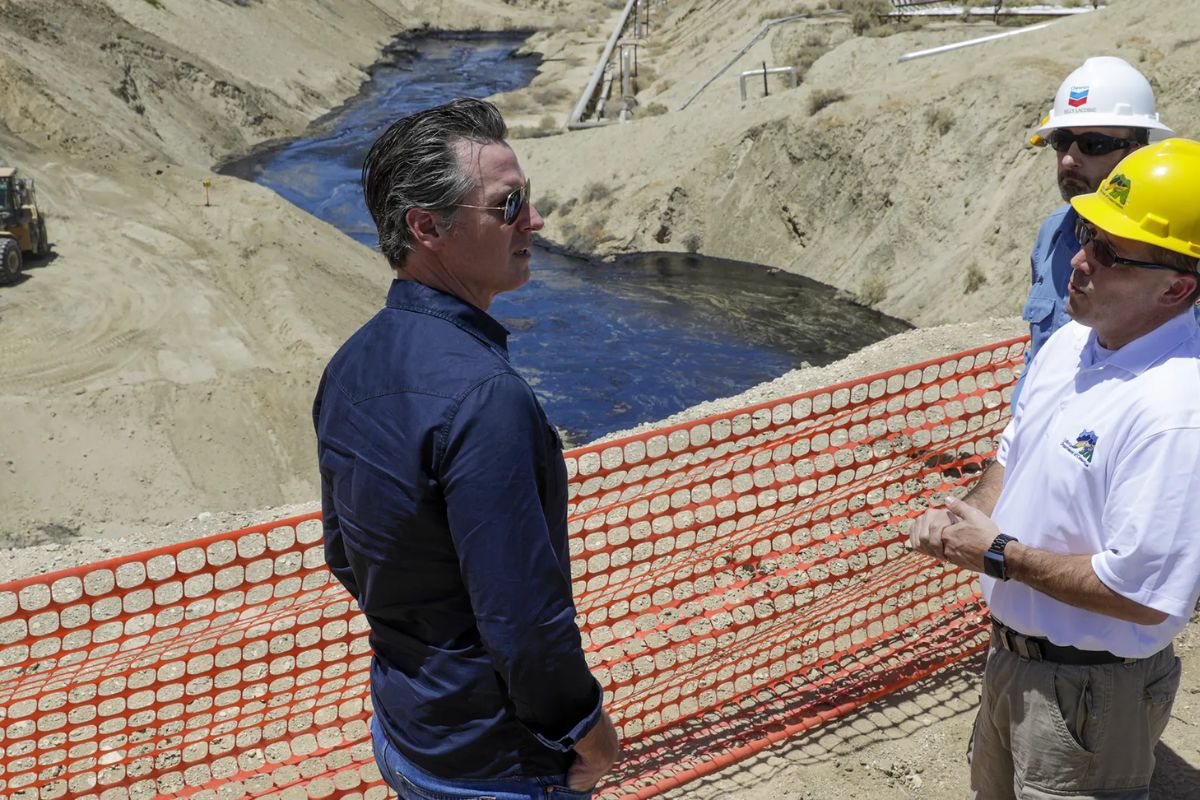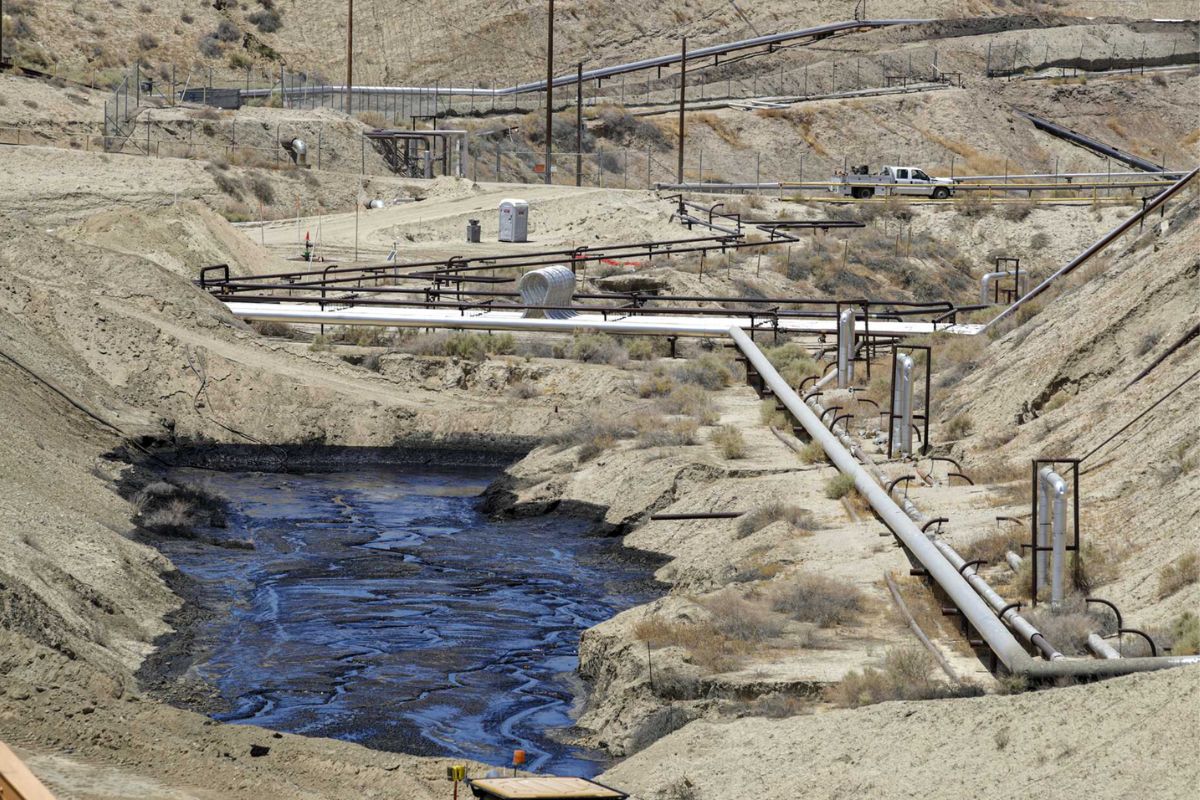Chevron Shell-shocked: Chevron faces a $13 million fine for California oil spills, with $5.6 million from the Department of Conservation and $7.5 million from Fish and Wildlife. Over 70 spills in Kern County since 2018 have led to significant environmental damage, affecting land, water, and wildlife. Chevron’s commitment to cleanup and environmental responsibility is emphasized through proactiveness and collaboration with authorities. The penalties set a precedent for stricter enforcement, promoting accountability in the oil industry. This fine underscores the importance of safety measures and environmental compliance. The implications of Chevron’s actions are significant for environmental accountability.
Chevron Agrees to Pay $13 Million in Penalties for California Oil Spills
In response to the oil spills that occurred in Kern County in 2019, Chevron has agreed to pay a total of over $13 million in penalties to the California Department of Conservation and the California Department of Fish and Wildlife. This significant fine, amounting to $5.6 million and $7.5 million imposed by the respective agencies, highlights the gravity of the environmental violations resulting from the spills. The repercussions of these incidents have raised concerns regarding public health and safety, as well as the preservation of the surrounding ecosystems.
The penalties imposed on Chevron signify a pivotal moment in the history of the California Department of Conservation and the California Department of Fish and Wildlife. The $5.6 million fine stands as the largest ever issued by the Department of Conservation, underscoring the severity of the environmental damage caused by the oil spills. Similarly, the $7.5 million penalty from the Department of Fish and Wildlife marks a significant milestone as the largest administrative fine in the agency’s history.
Chevron’s agreement to pay these substantial penalties indicates a recognition of its responsibility in addressing the environmental consequences of the oil spills. Moving forward, it is imperative for companies operating in the oil industry to prioritize stringent safety measures and environmental protection to prevent similar incidents and uphold regulatory compliance.
Extent of the Environmental Damage
The investigation conducted by the Office of Spill Prevention and Response has exposed the extensive environmental ramifications stemming from more than 70 oil spills attributed to Chevron in Kern County between 2018 and 2023. These spills, totaling over 446,600 gallons of oil and 1.48 million gallons of water, have had severe consequences on the local ecosystem. At least 63 animals have been reported dead or injured as a direct result of these spills, highlighting the essential impact on wildlife populations in the area.
Furthermore, the spills have also caused significant damage to the habitat, with approximately six acres of land, including vital streambeds, being affected. This disruption to the habitat can have far-reaching effects on the ecosystem, potentially leading to long-term consequences for plant and animal species in the region. The contamination of water sources and soil can also pose risks to human health and agricultural activities in the area, underscoring the broader implications of these environmental disasters.
The scale of the environmental damage caused by these oil spills is alarming and necessitates immediate action to mitigate the harm done to the ecosystem. Understanding the full extent of the impact is critical in developing effective strategies for remediation and preventing similar incidents in the future.
Chevron’s Response and Commitment
Emphasizing their commitment to environmental responsibility, Chevron spokesperson Sean Comey outlined the company’s proactive measures in response to the recent oil spill incidents in Kern County. Comey stressed Chevron’s dedication to collaboration with government agencies to guarantee environmental safety and compliance. He mentioned that the settlement funds would be utilized to address vital issues such as plugging old orphaned wells and supporting habitat preservation projects. This strategic allocation of resources reflects Chevron’s willingness to go beyond mere monetary compensation and invest in long-term environmental sustainability.
Furthermore, Chevron has agreed to ongoing monitoring of the spill sites under Department of Conservation oversight. This commitment to continued oversight demonstrates Chevron’s recognition of the need for transparent and accountable practices to prevent future incidents. By accepting these terms, Chevron can now shift its focus towards providing cleaner energy solutions while upholding its environmental obligations.
Significance of the Settlements
The financial penalties underscore a pivotal shift towards increased accountability in the oil industry and the prioritization of environmental protection. The settlements following the California oil spills demonstrate a significant step in enforcing responsibility among oil companies for environmental violations. By imposing a $13 million fine on Chevron, California is sending a clear message that actions leading to environmental harm will not go unpunished. This move showcases a commitment to safeguarding ecosystems and public health while holding corporations to a higher standard of environmental stewardship.
Moreover, the allocation of funds towards remediation efforts signifies a proactive approach to mitigating the damages caused by the oil spills. California’s decision to direct these resources towards cleanup and restoration projects reflects a dedication to not only rectifying the immediate consequences of the spills but also investing in long-term environmental sustainability. By prioritizing these efforts, the state aims to prevent similar incidents in the future and foster a culture of compliance with environmental regulations within the oil industry.
Conclusion and Future Outlook
Looking forward, what implications will Chevron’s significant fine have on the future of environmental accountability in the oil industry? The $13 million penalty imposed on Chevron for the California oil spills sets a precedent for stricter enforcement of environmental regulations within the industry. This hefty fine serves as a warning to other oil companies, signaling that negligence towards environmental protection will not be tolerated.
The outcome of this case highlights the necessity for increased vigilance and oversight in oil production and transportation processes. It emphasizes the importance of adhering to safety protocols and implementing measures to prevent environmental disasters. Moving ahead, companies operating in the oil sector will likely face heightened scrutiny and pressure to comply with regulations to avoid similar repercussions.
Moreover, the fine underscores the shift towards sustainable practices and renewable energy sources. It prompts a reassessment of the industry’s reliance on fossil fuels and the urgent need to adopt cleaner alternatives. As environmental concerns become more pressing, the oil industry will need to adapt and innovate to align with evolving regulatory standards and societal expectations.
ALSO READ: California Truck Accident: Stay Safe With These Tips!
News in Brief
Chevron is reeling from a hefty $13 million fine for oil spills in California, with $5.6 million from the Department of Conservation and $7.5 million from Fish and Wildlife. Over 70 spills in Kern County since 2018 have wreaked havoc on the environment, leading to significant damage to land, water, and wildlife. Despite the setbacks, Chevron vows to prioritize cleanup efforts and environmental responsibility through collaboration with authorities. This landmark penalty sets a precedent for stricter enforcement in the oil industry, emphasizing the importance of safety measures and environmental compliance. The implications of Chevron’s actions signal a pivotal moment for environmental accountability.



